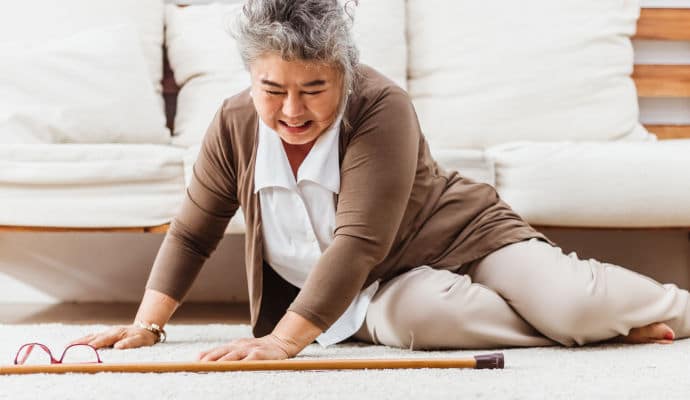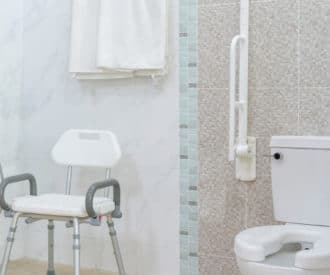
For seniors, independence and safety are both important
Preventing falls is an effective way to help seniors stay independent longer.
Falls cause serious injuries like hip fractures, broken bones, and head injuries – all of which lead to a decrease in abilities.
With more than 1 in 4 seniors falling each year, simple fall prevention tips can make a big difference in your older adult’s safety and independence.
We found a free checklist from the Centers for Disease Control (CDC) that estimates your older adult’s risk of falling and what’s causing their fall risk.
It also provides information that helps you discuss specific concerns about real-life situations with their doctor.
We explain how to use this fall risk checklist to take preventive action before a fall happens.
The fall risk checklist alerts you to falls before they happen
The CDC's fall risk checklist has 12 simple Yes/No questions that assess your older adult’s fall risk.
It asks about their history of falls, how steady they feel in real-life situations, medications, and mood. If they score 4 points or more, they have a greater risk of falling.
If the score shows that your older adult’s fall risk is high, talk with their doctor as soon as possible.
The checklist and score helps doctors make better recommendations
Showing the completed checklist to the doctor gives them a better idea of which types of movement or other issues are increasing your older adult’s fall risk.
When the doctor has more information to work with, they’ll be able to make better recommendations on how to reduce the likelihood of falls.
Next Step Print or save the CDC fall risk checklist in English or Spanish
Recommended for you:
- 3 Easy Tai Chi Videos for Seniors Prevent Falls, Improve Balance and Strength
- Home Modifications for Seniors: A Room-by-Room Guide for Safety and Independence
- Reduce Falls With 2 Useful at-Home Balance Exercises for Seniors
By DailyCaring Editorial Team
This article wasn’t sponsored and doesn’t contain affiliate links. For more information, see How We Make Money.
[optin-monster slug=”yxbytm35zhsdfopnw7qk”][optin-monster slug=”jvhyplxmb4umsjazxecn”]
About the Author

Connie Chow
Connie was a hands-on caregiver for her grandmother for 20 years. (Grandma made it to 101 years old!) She knows how challenging, overwhelming, and all-consuming caring for an older adult can be. She also knows how important support is — especially in the form of practical solutions, valuable resources, and self-care tips.




